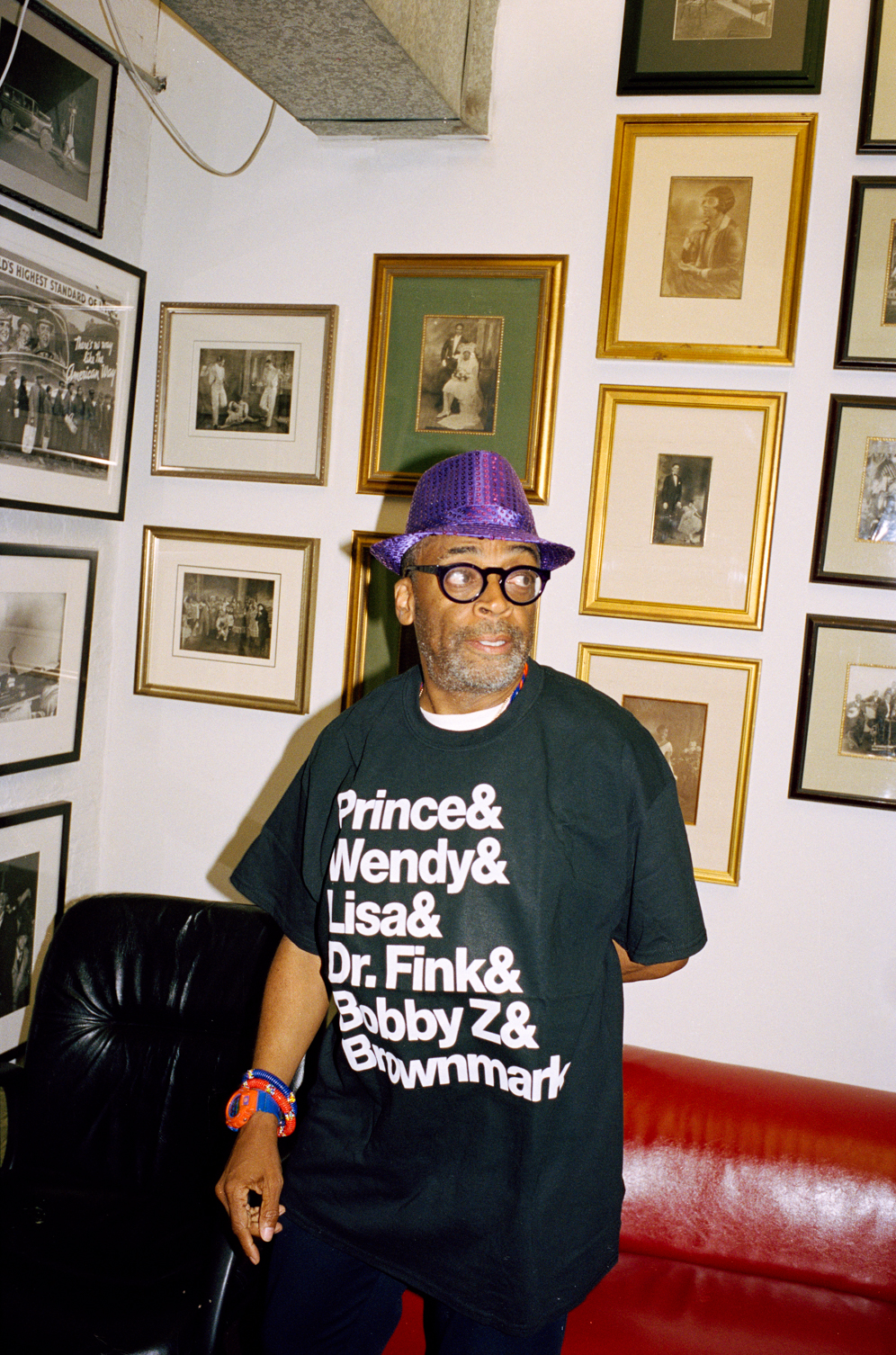SPIKE LEE — Why would not a black person be obsessed with race, when his ancestors were stolen from mother Africa, brought here to build this country? I just find it very…amusing, when people say “Why are black people mad, or upset, or angry?” I think that if you put it into historical context, with all the shit that’s happened to us, we’re very calm!
OFFICE — It’s hardly an obsession.
SL — It’s not obsession. You’re reminded that you’re black every single day. When I can’t catch a motherfuckin’ cab in the morning, when their lights are on, and then they see me and turn the lights off, or when I say where I wanna go and they say “My shift is ending” and speed away… So as a black person you’re reminded every day that you’re black. Whether you wanna admit it or not. I love Jay’s new song, where he says “’I’m not black, I’m O.J.’…OK.” What Jay just did there, that’s amazing. So often there are African Americans who think that once they get some acclaim and status, then they’re no longer black—but sooner or later, they will be reminded.
O — Can you remember the earliest moments in your youth, when you were reminded of your blackness?
SL — Oh, yeah. I remember before our family bought our brownstone in Fort Greene, for $45,000 back in 1968, ’69, we lived in Cobble Hill. At that time it was a predominantly Italian-American neighborhood. I wanted to join the Boy Scouts, and I was told I couldn’t join because I wasn’t Catholic.
O — That’s a nice euphemism.
SL — Yeah. So look—it wasn’t a traumatic moment in my life, but just as an example of being reminded. We were the first black family to move into Cobble Hill, we lived in Crown Heights first, so me and my siblings got called nigger, but once they saw that there wasn’t a whole wave of black people coming behind the Lee’s, then we were alright. They got over that in like a month, but the first month they were like nigger this, nigger that.
O — At that point did you have people in your life, parents or teachers, who were very vocal about issues of race?
SL — My parents were woke. They would tell me and my siblings what was happening. So we were very aware of the world. I say this all the time, but I come from a generation where black parents told their children that they had to be ten times better than their white classmates. I would say, “Mommy, that’s not fair!” and she’d say “Fuck what’s fair, that’s just the way it is.” So we came up in a time where we were taught we had to excel. I would come home with a B on my test and be happy, and my mom would say “You know what? That’s not good enough, because I know your Jewish classmates are gettin’ an A+.” That’s the type of household I was in, where you were taught—again to quote Jay-Z—what Jay calls black excellence. So that’s the era. Mother and father at home, mom taught black literature at St. Ann’s in Booker Heights, my father was a jazz musician, but he started getting work as a top folk bassist, played with Bob Dylan, Peter Paul and Mary, Odetta. Puff the Magic Dragon, that’s my father on bass. There’s one album, the only instruments are Bob Dylan on guitar and my father on bass. When Bob Dylan started going electric my father stopped working, because he refused to play electric music. My mother wasn’t working, she was raising the kids, so she had to get a job. She started teaching at St. Ann’s because my father was not going to play electric bass, even though he had five kids.
O — What do you think kept him from switching over to electric?
SL — His values. As he called it, “tone as is.” Even when he played upright, he wouldn’t put a pickup on his bass. My mother wasn’t going to let us starve, so she had to work. All that is in Crooklyn, you ever see Crooklyn?
O — Mhmm.
SL — Well you see it again.
